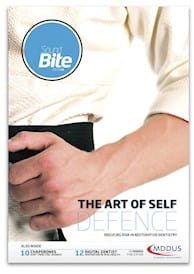YOU have just looked at your appointment book for the day ahead and that complex treatment you had booked in for Mr Brown for 45 minutes has been reduced to 30 minutes as reception have squeezed in an emergency patient. You can feel your stress levels rising and your day hasn’t even started.
If you did have the time to stop and think before Mr Brown sat down, you could have carefully reviewed your treatment plan. Instead you feel rushed. Are you competent to carry out this treatment safely and to the appropriate standard? Are you confident that the training you went on last month gave you the necessary skills?
This can be a common dilemma for dentists who are looking to broaden the range of treatments they offer and expand their professional skillset. So the question is: “How do we start to move forward and develop our skills safely?”
The General Dental Council’s Standards for the dental team states that “you must provide good quality care based on current evidence and authoritative guidance” and that “you must work within your knowledge, skills, professional competence and abilities.” It makes it clear you must only carry out a task or type of procedure if you are appropriately trained, competent, confident and appropriately indemnified. So how is this possible when you are carrying out a procedure for the first time?
The starting point of learning any new skill is identifying what it is that you want to achieve. As dentists we are responsible for our own professional learning and development. Indeed, we will all have to comply with the GDC’s new enhanced CPD (ECDP) scheme which comes into effect in January 2018.
Under ECPD, dentists will be expected to use a personal development plan (PDP) to identify new skills they wish to learn; to plan the CPD they will need to attain this; and review the anticipated outcomes and timeframe in which they wish to achieve this. The days of going on a course solely to catch up with your friends have gone.
The question now is where do you start?
Undertaking additional training to further develop our skills not only enables us to provide better patient care, it also increases our professional satisfaction. But before you jump straight into drafting a PDP, take some time to honestly reflect on your current skills and knowledge and compare that to where you want to be. Carefully consider your next step and be aware of the pitfalls of being overly ambitious and trying to expand your skills too far and too soon.
Dentists have a wide range of training options to choose from: perhaps you are interested in learning about sedation techniques or would like to provide particular aesthetic treatments? Once you have identified an area which requires a new skill, the next step is to plan your CPD and find an appropriate training course to meet your needs. This requires some care and attention as the quality and scope of courses varies wildly. Some may be sponsored by companies while others are independent.
Regardless of which type of course you choose, there are a few essential elements for keeping yourself right when developing additional skills. Consider:
- Who is taking the course? What is the experience of the speaker and are they affiliated with any companies?
- Is there an exam/assessment at the end of the training course? Is there ample opportunity to practise the clinical skills you have just learned? Consider whether the course allows enough time for you to realistically learn the skill being taught to an acceptable professional standard.
- A good training course will provide ongoing support after completion. A mentor may be appointed who can offer assistance with pre-treatment case assessment and pre-op planning. They may also be available to watch you carry out the procedure and provide a post-treatment appraisal. Once you and the mentor agree that you are confident and competent enough to start going solo they will provide ongoing support and advice.
It is up to the individual practitioner to demonstrate the adequacy of their training. A portfolio of your work provides a record of treatment undertaken and the outcomes achieved but it should be more than just a compilation of photographs. Include reflective commentary on each of the cases and an appraisal by the mentor. This way it will support and demonstrate the type of learning undertaken and can also provide valuable supporting evidence should your competency be called into question.
So before you start Mr Brown’s complex treatment, be mindful that you are not overreaching yourself for the benefit of your career or overriding what is in the patient’s best interest. Learning and developing new skills is a vital part of being a dentist and ultimately patients benefit from having a happy enthusiastic clinician.
Laura McCormick is a dentist and early practitioner adviser at MDDUS
This page was correct at the time of publication. Any guidance is intended as general guidance for members only. If you are a member and need specific advice relating to your own circumstances, please contact one of our advisers.
Read more from this issue of Insight Primary

Save this article
Save this article to a list of favourite articles which members can access in their account.
Save to library